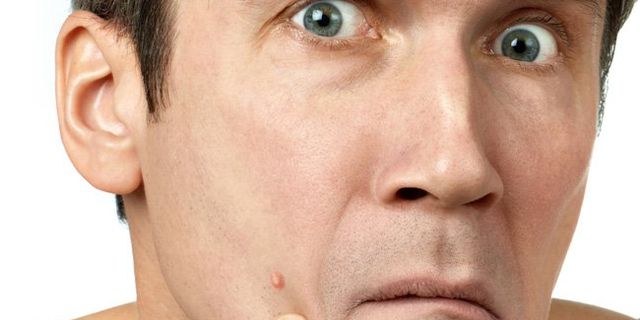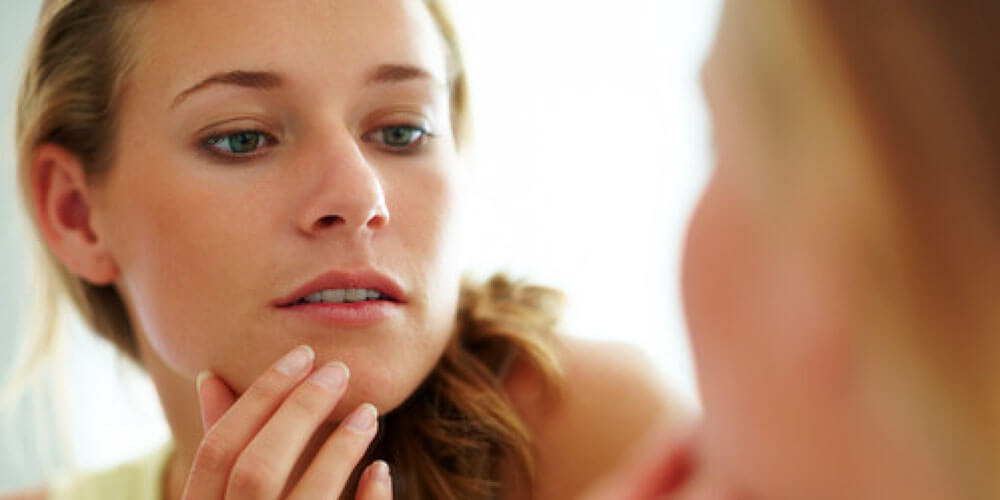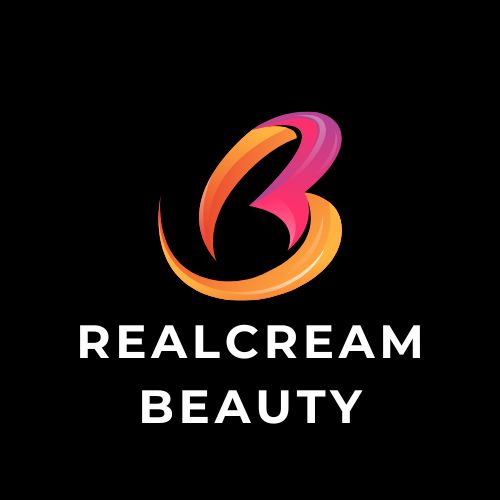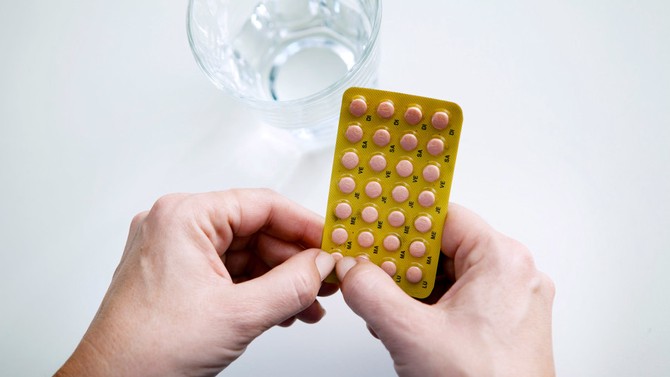There are five common reasons why you might have adult acne. These include hormonal changes, stress, beauty products, medications, and not washing your face properly.
Hormonal changes, such as fluctuations in estrogen and testosterone levels, can lead to increased oil production and clogged pores. Stress can also exacerbate acne by triggering hormonal imbalances. Certain beauty products, particularly those that are greasy or oily, can clog pores and contribute to acne breakouts.
Medications, such as steroids or hormones, can also have acne as a side effect. Lastly, failing to properly cleanse your face can lead to the buildup of oil, dirt, and bacteria, leading to acne.
Causes Of Adult Acne
One of the leading causes of adult acne is hormonal changes. Hormones play a significant role in regulating oil production in our skin. During certain life stages, such as puberty, pregnancy, or menopause, hormonal fluctuations can disrupt the delicate balance and trigger the onset of acne. For women in particular, estrogen levels tend to decline as we age, while male hormones like testosterone and dihydrotestosterone (DHT) increase. This hormonal imbalance can stimulate the sebaceous glands to produce more oil, leading to clogged pores and the formation of acne.
External factors can also contribute to the development of adult acne. Using greasy or oily cosmetic and hair products can clog the pores and create a favorable environment for acne-causing bacteria. Additionally, certain medications like steroids, testosterone, estrogen, and phenytoin may have side effects that include acne flare-ups. Heavy sweating, humidity, and excessive touching or rubbing of the skin can also exacerbate acne symptoms.
Genetics can be another underlying cause of adult acne. If your parents or close relatives have a history of acne, you may be more prone to developing it as well. Studies have shown that genes influence the way our skin reacts to hormonal changes, sensitivity to inflammation, and the production of sebum. While genetics alone may not directly cause acne, they can increase the likelihood of experiencing breakouts.

Credit: www.menshealth.com
Hormonal Changes
One of the leading causes of adult acne is hormonal changes. Fluctuations in hormones can disrupt the delicate balance of our skin, leading to breakouts and blemishes. It’s especially common among women, as they experience hormonal shifts during various stages of life, such as puberty, menstruation, pregnancy, and menopause.
Decreased Estrogen Levels
As women age, their estrogen levels naturally decline. This decrease in estrogen can throw off the delicate balance of hormones in the body and trigger acne breakouts. Estrogen plays a crucial role in regulating the production of sebum, the oily substance that clogs pores and can contribute to acne. When estrogen levels decrease, the sebum production can increase, leading to the formation of acne.
Increased Male Hormones
At the same time, male hormones like testosterone and dihydrotestosterone (DHT) tend to increase in both men and women as they age. These hormones can stimulate the oil glands, resulting in excess sebum production. The excess sebum can mix with dead skin cells and bacteria, clogging the pores and causing acne. This is why adult acne is more common in individuals with higher levels of male hormones.
It’s important to note that hormonal changes can also be caused by underlying medical conditions such as polycystic ovary syndrome (PCOS) or hormonal imbalances. If you suspect that hormonal changes are contributing to your adult acne, it’s best to consult with a healthcare professional who can evaluate and guide you in managing your hormonal health.
External Factors
Adult acne can be caused by a variety of external factors such as hormonal changes, greasy cosmetic products, certain medications, excessive sweating, and not properly cleansing the skin. These factors can contribute to the production of excess oil, clogged pores, bacterial growth, and inflammation, leading to adult acne.
Excess Oil Production
One of the main external factors that can contribute to adult acne is excess oil production. When your skin produces too much oil, it can clog your pores and lead to the formation of acne. This excess oil is often caused by hormonal imbalances, stress, or certain medications.
Clogged Pores
Another external factor that can cause adult acne is clogged pores. When dead skin cells and oil build up in your pores, it creates the perfect environment for acne-causing bacteria to thrive. This can be worsened by not properly cleansing your face, using heavy or greasy cosmetic products, or exposing your skin to a humid or sweaty environment.
Bacterial Infection
Bacterial infection is also a common external factor that contributes to adult acne. When the trapped oil and dead skin cells in your pores become a breeding ground for bacteria, it can lead to inflammation and the formation of pimples. This is why proper hygiene, including regular face washing, is crucial in preventing bacterial infection and reducing the risk of acne.
Inflammation
Inflammation plays a significant role in adult acne development. When your skin becomes inflamed, it can trigger the production of excess oil and break down the collagen in your skin, leading to pore blockage and acne formation. Inflammation can be caused by various factors, including hormonal changes, diet, and external irritants such as pollution or harsh skincare products.
Overall, understanding the external factors that can contribute to adult acne is crucial in managing and preventing breakouts. By controlling excess oil production, keeping your pores clean, preventing bacterial infection, and reducing inflammation, you can significantly improve the health and appearance of your skin.

Credit: www.theaestheticmethod.com
Genetic Predisposition
Family History of Acne:
If you’ve been wondering why you’re still dealing with acne as an adult, your family history might hold the key. A family history of acne can be a strong indicator that you are genetically predisposed to developing this skin condition.
Studies have shown that if your parents or close relatives have had acne, there is a higher chance that you will also experience it. This genetic predisposition can make you more susceptible to certain factors that contribute to adult acne, such as hormonal imbalances and excessive oil production.
Understanding your family history of acne can be helpful in managing and treating your own adult acne. Knowing that it is a genetic condition can provide insight into why you might be experiencing it and help you develop a more targeted approach to skincare.
Family History Of Acne
If your parents or close relatives have struggled with acne in the past, there is a possibility that you have inherited a genetic predisposition to developing this skin condition. While not everyone with a family history of acne will necessarily experience it themselves, it does increase the likelihood.
Genes play a significant role in how our skin behaves and reacts to certain triggers. Research has shown that specific genes related to sebum production, inflammation, and skin cell turnover can impact the development of acne.
Understanding your family history of acne can help you determine your risk level and take preventive measures. While genetics may not be something you can change, knowing that you are genetically predisposed to acne can empower you to be proactive in managing your skincare routine and seeking appropriate treatments.

Credit: drterryloong.com
Frequently Asked Questions Of 5 Reasons You Might Have Adult Acne
What Is The Most Common Cause Of Adult Acne?
The most common cause of adult acne is the same as adolescent acne: excess oil production, clogged pores, bacteria, and inflammation. Hormonal changes, greasy cosmetics, certain medications, and sweating can also trigger adult acne. It is important to maintain a regular skincare routine to prevent and treat adult acne.
What Are 5 Causes Of Acne?
The five causes of acne are hormones, stress, beauty products, medications, and not washing your face. Bacteria and clogged pores can also contribute to acne. Family history can play a role as well. These factors can lead to inflammation and excess oil production, resulting in acne.
Why Am I An Adult With Acne?
Adult acne can be caused by several factors including hormonal changes, excess oil production, clogged pores, bacteria, inflammation, greasy or oily cosmetic products, certain medications, not washing your face, family history, and sweating. Hormonal changes, especially in women, can play a significant role in adult acne.
Regularly cleaning your skin and avoiding triggers such as oily products and heavy sweating can help manage and prevent adult acne.
What Causes Body Acne In Adults?
Body acne in adults is primarily caused by excess oil production, clogged pores, bacterial infection, inflammation, hormonal changes, greasy cosmetics, certain medications, heavy sweating, and sun exposure. Regularly cleaning the skin and avoiding triggers can help prevent body acne.
Conclusion
To effectively manage adult acne, it’s crucial to understand the underlying causes. While hormonal changes play a significant role, other factors such as greasy cosmetic products, medications, bacteria, and clogged pores contribute to breakouts. Regularly cleansing the skin, avoiding oily products, and managing stress levels can help prevent and alleviate adult acne.
By addressing these potential triggers, individuals can achieve clearer and healthier skin. Remember, taking a holistic approach to skincare and maintaining a consistent routine is key.



